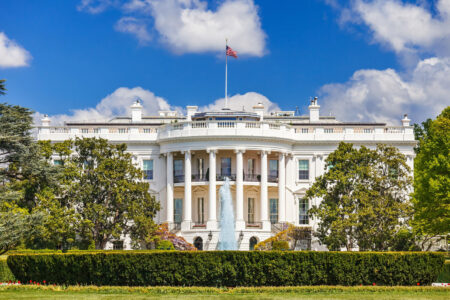While some crypto skeptics still advocate for a ban on blockchain-based currencies, governments around the world have been working on comprehensive regulatory guidelines for the upcoming space. A glance at crypto regulation in Switzerland, the EU, the US as well as Asia.
In an era marked by the rapid rise of cryptocurrencies and blockchain technology, nations around the globe are navigating a complex regulatory landscape. Complete bans on the technology are becoming much rarer, while sensible guidelines for crypto assets are gaining traction across different jurisdiction. One of the earliest adopters of such an approach has been Switzerland - home of the Crypto Valley.
A thriving crypto ecosystem in the heart of Europe
Switzerland has had a positive attitude towards cryptocurrencies and has taken steps to establish itself as a global leader in the crypto space. The provision of a cryptocurrency exchange and custodian services in Switzerland is legal and regulated by the Swiss Financial Market Supervisory Authority (FINMA). The Swiss Federal Council published a comprehensive report in December 2018 covering the legal framework for DLT and blockchain in Switzerland. The Swiss DLT Act came into force in 2021 after a fast but thorough law-making process, and the act went along with a general ordinance. Banks like Swissquote, Zuger Kantonalbank, Luzerner Kantonalbank, and PostFinance operate alongside specialized crypto banks such as SEBA and Sygnum.
EU taking first steps towards regulation
The European Union has adopted one the world's first comprehensive set of rules to regulate crypto-assets, known as Markets in Crypto Assets (MiCA), earlier this year. The MiCA regulation provides a uniform legal framework for crypto-assets markets in the EU, and operations with crypto-assets will be traced in the same way as traditional money transfers. The EU's crypto regulation is expected to be rolled out starting in 2024. Several banks, including Deutsche Sparkassen, Deutsche Bank, and Société Générale, now offer or have announced plans to offer crypto services.
More complex regulatory situation in the US
Crypto regulation in the US is still a developing area, with many debates ongoing. The Biden administration clarified crypto use and regulation in 2022, paving the way for clearer guidelines. Various regulatory bodies are vying for dominance in regulation, including the SEC, CFTC, and the Office of the Comptroller of the Currency (OCC). Particularly the SEC has been exploiting the gray area to gain attention with a questionable "rules by enforcement" approach. The agency has faced significant criticism for this and has already lost several landmark legal cases.
The senate is responsible for legislation. Several bills related to cryptocurrency have been introduced and debated. The most significant proposed legislation is the so called "Crypto Bill" passed in July. The bill includes progressive regulation and subjects the domain to the oversight of the CFTC. Traditional finance has largely integrated digital assets into their services. For example, futures contracts are traded on the CME and CBOE, and major banks offer services to customers in this domain. Future-based ETFs are also traded on US exchanges. Additionally, the second largest cryptocurrency exchange, Coinbase, is based in the USA and listed on the NASDAQ.
Fragmented approaches in Asia
The regulatory framework for cryptocurrencies is fragmented and varied across the board in Asian countries. India's stance on cryptocurrency regulation has evolved, shifting from a total ban on crypto activities to contemplating industry regulation through the forthcoming Cryptocurrency and Regulation of Official Digital Currency Bill.
The Asia-Pacific (APAC) region boasts some of the highest cryptocurrency adoption and growth rates. Lawmakers and regulators are introducing innovative rules and guidelines to further drive economic momentum. Even though cryptocurrencies are still officially banned in China, the ruling party is opening up to the space, as demonstrated by Hong Kong's issuance of its first trading platform licenses.
In Japan, cryptocurrencies and utility tokens like BTC and ETH are categorized as "Crypto Assets" under the Payment Services Act. Cryptocurrencies are legal in Singapore, with the country providing a conducive regulatory environment for crypto enterprises. The Monetary Authority of Singapore (MAS) oversees the crypto sector, establishing guidelines for digital token offerings and cryptocurrency exchanges.
Middle East: the next crypto hub?
The United Arab Emirates, with its crypto-friendly policy, has become a hub for both new and established crypto companies. Dubai and Abu Dhabi in the United Arab Emirates (UAE) have been rated tops in the regulatory structure, with Dubai aiming to become a global hub for crypto and blockchain. The Dubai Financial Services Authority (DFSA) oversees financial regulation and is responsible for regulating Dubai's crypto industry. Bahrain and the UAE are the sole Middle Eastern countries to establish clear digital asset regulations, with Bahrain releasing a crypto asset regulatory module in 2019.








